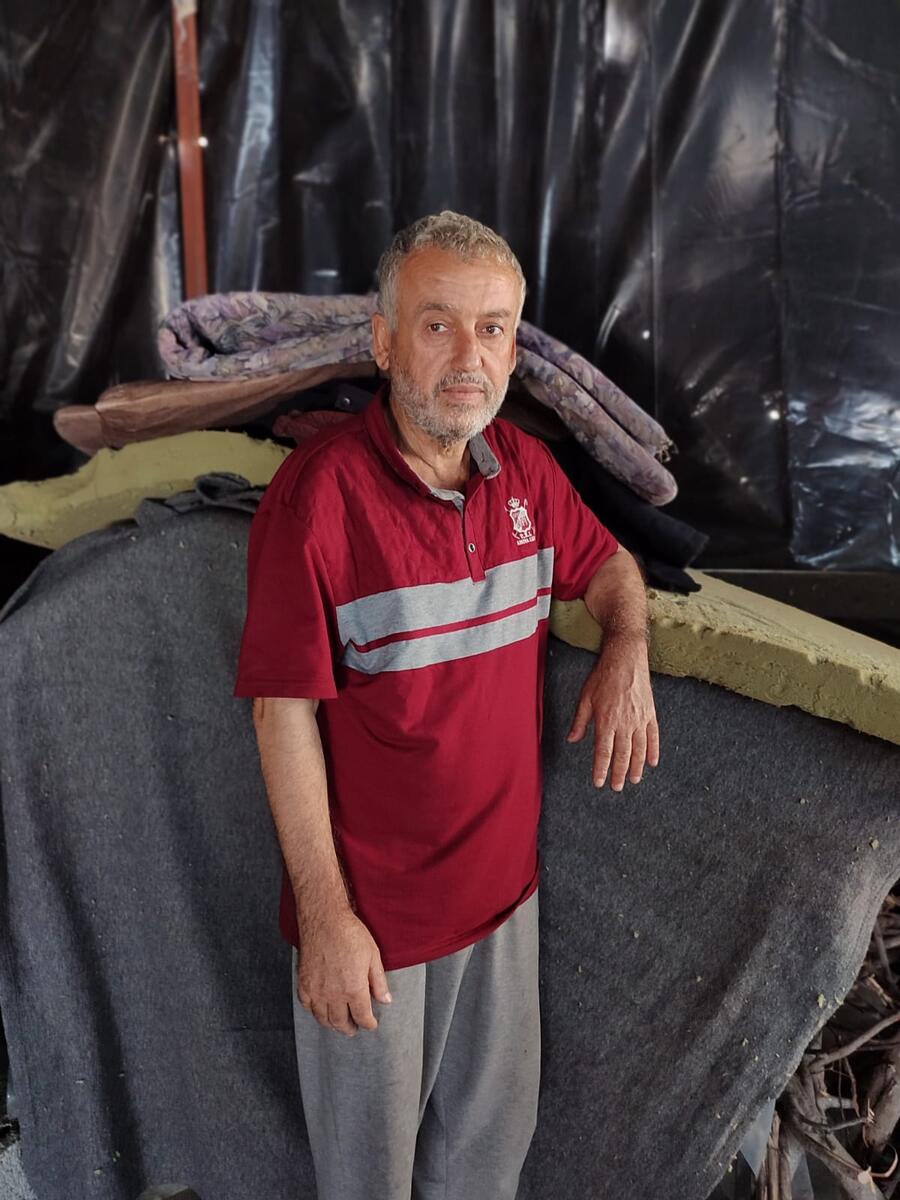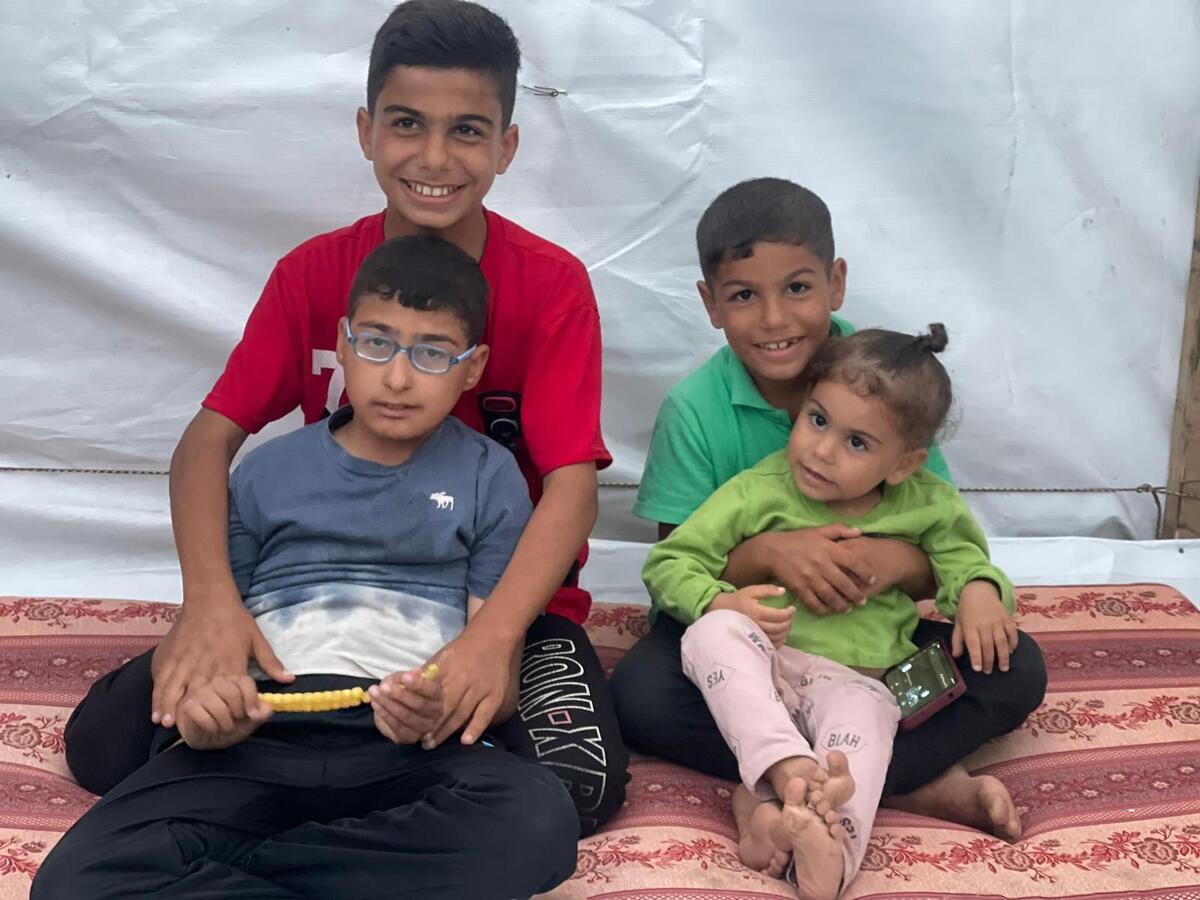The stories behind the numbers
Since October 7, the children and families in Gaza have been facing a horrendous surge in violence. Within the first three weeks of the recent escalation of violence, the number of children killed had surpassed the annual number of children killed across the world’s conflict zones since 2019. This horrific statistic is devastating but there is something missing: these numbers never show the stories, hopes, and dreams of the children and their families who have been killed.
Close to two million people in Gaza have been left with nowhere safe to go, forced into congested shelters, without essential infrastructure or services. The threat is not just from bombs and bullets but also from hunger, dehydration, and malnutrition, especially for the most vulnerable — children.
To date, more than 7,100 children have been killed in Gaza and thousands of others are missing—assumed to be trapped under the rubble, injured or dead. If the violence continues, thousands more will die. We must remember behind every statistic, there is a story of resilience, loss, and an enduring spirit.
Below we share stories as told by children and families that Save the Children programs in Gaza supported prior to the recent escalation of violence. These stories shine light on the lives behind the overwhelming numbers.
Fadl and Sanaa
Fadl*(pictured below) was a beneficiary of Save the Children’s olive tree program in 2018. The program gave him the opportunity to provide for his family by producing olives and olive oil. However, life changed when a bomb destroyed the family home during the recent attacks. Fadl, his wife Sanaa, and their four grandchildren fled to seek safety, which was a challenge because no place is safe in Gaza. “We spent the night in a school, but the situation there was dire. When the bombing intensified, we could not flee. We barely saved ourselves when we fled. Then moved to a shelter,” Fadl says.

Now, living in a shelter with 60 extended family members, life is incredibly challenging. The shelter is overcrowded, and the hygienic conditions are poor, which makes the children constantly sick. “I have four children in the family who are always sick with diarrhea, flu or cold,” Sanaa describes.
The challenges don’t end there. Fadl and Sanaa have also taken in two little girls who were injured in the violence. “Now we have two more injured girls. My son took them to the hospital, but they were not admitted due to a lack of space,” says Sanaa.
With temperatures falling as winter approaches, the family’s situation will only get worse. They lack blankets and warm clothing to take them through the winter.
Click below to listen to Fadl and Sanaa’s experience in Gaza.
Hisham
Hisham is the second eldest child in his family and dreams of becoming a surgeon. Before the recent violence, the family was supported by a Save the Children project. In October, when their home in Gaza was destroyed in a bombardment, they fled immediately. They tried to stay at a relative’s house, but it was not safe there either.

The family now lives in an overcrowded shelter, sharing a tent with extended family. “My day used to start with breakfast, then studying, and sleep at night. But now I spend my time carrying water and queuing to go to the toilet,” says twelve-year-old Hisham.
Hisham and his family want the fighting to stop so they can return to their homes and school.
Click below to listen to Hisham’s personal experience
Anwar
At only 16 years old, Anwar was detained by Israeli authorities in a prison for 10 days. “My experience was harsh. I was beaten violently by the Israeli soldiers, particularly during the first two days of my detention. I barely got the chance to wash my hands. The facilities were very small, unclean, and with no sense of privacy whatsoever,” says Anwar.
Sadly, Anwar’s story is familiar among Palestinian children and youth who have endured the Israeli military detention system. Palestinian children are the only children in the world who are arrested and systemically face prosecution in military courts. In the last 20 years, close to 10,000 Palestinian children have been detained in the Israeli military detention system for offenses as minor as stone throwing. The sentence associated with this crime can be up to 20 years.
According to Save the Children’s report, Injustice, 86 per cent of Palestinian children experienced appalling levels of physical and emotional abuse while detained. Prison is no place for children and their experiences while in these facilities’ have lasting effects on their mental health.
Fifty-three per cent of Palestinian children that were previously detained said they experience nightmares, while 73 per cent have insomnia and difficulty sleeping. Forty-nine per cent are unable to express their emotions and 42 per cent said they are unable to focus.
In the ongoing conflict in the occupied Palestinian territories, Israeli military authorities continue to detain Palestinians in Gaza and the West Bank. Recently, approximately 145 Palestinian children were detained in the West Bank. Many of them held without a formal charge or a trial date, a violation of the international justice standards for young offenders.
Before the recent violence, Save the Children supported children once they were released with psychosocial counselling, access to education and vocational training, and free legal representation.
Holding onto hope
These stories, images, and voices help to transform numbers into personal testimonies. They give us a glimpse into the lives and experiences of children and families in Gaza, who have lived under a 17-year blockade with no economic stability and freedom. Now, during the recent escalation of violence, children and their families face so much more.
Recently, Jason Lee, Save the Children’s Country Director in the oPt said, “Humanity must prevail. We need a definitive ceasefire now. It is the only way to keep children safe and create conditions that allow us to provide urgent assistance at the speed and scale needed to save lives.”
As we witness the stories of loss and hardship, we continue to call for an end to the violence. Join us as we continue to call for a definitive ceasefire and adherence to International Humanitarian Law. Click here to learn how you can help.


